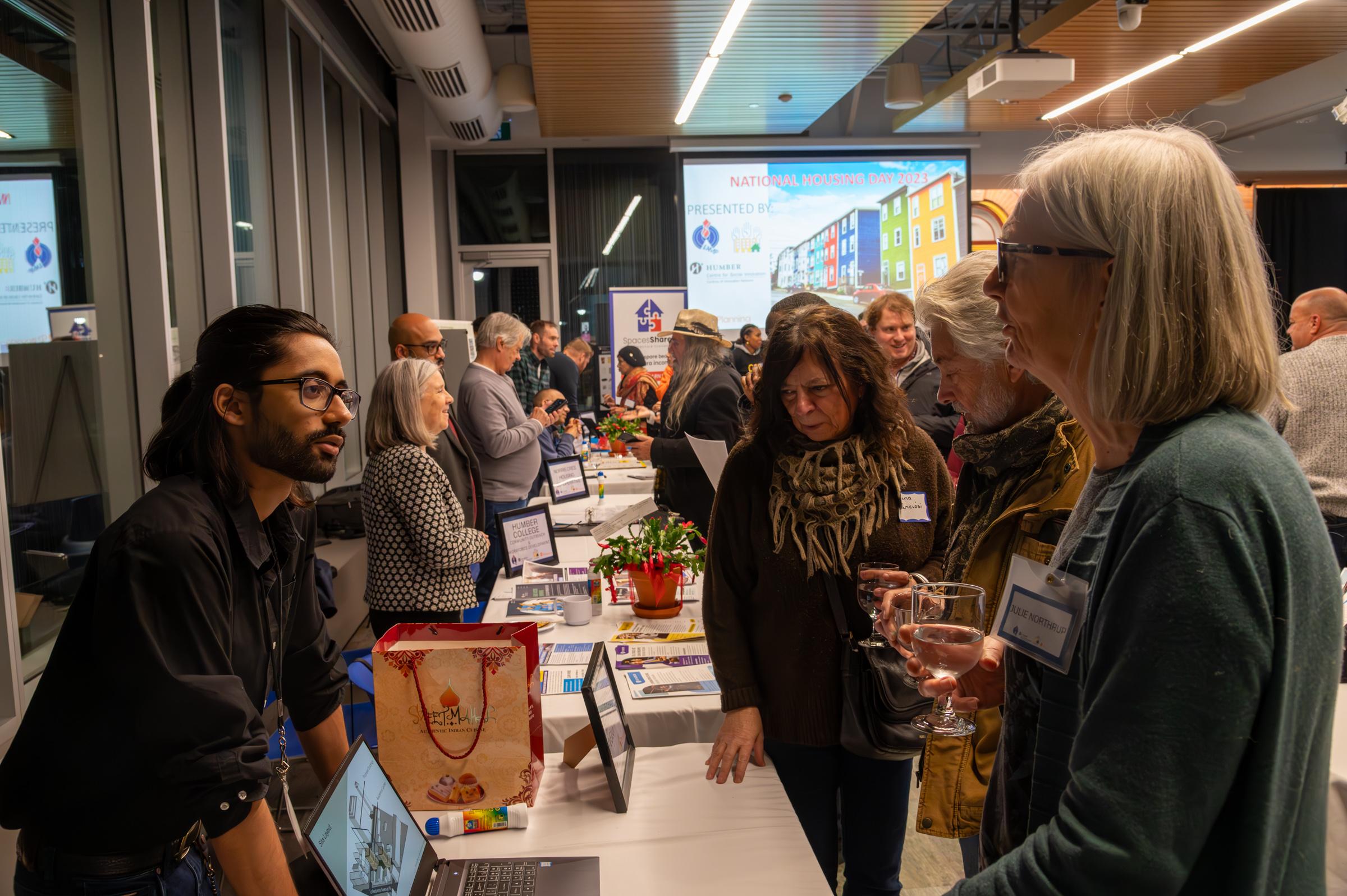
Jasmin Dooh says the affordable housing crisis has reached a tipping point.
Dooh, a health promoter community relations specialist with LAMP Community Health Centre (LAMP CHC), says the cost of housing has become so high that more people who haven’t previously worried about being unhoused are now feeling distressed about the growing possibility of no longer being able to afford to live in their community.
To help bring attention to the issue and to discuss ways to create more affordable housing in South Etobicoke, LAMP CHC, in partnership with Humber College’s Centre for Social Innovation (CSI), the Lakeshore Affordable Housing Advocacy and Action Group (LAHAAG) and CP Planning, held an Affordable Housing Charette at Lakeshore Campus to mark National Housing Day.
The CSI works to produce sustainable, just, effective solutions that enhance resilience and adaptability of social purpose organizations and create more equitable systems for all. It is part of Humber's Centres of Innovation Network that gives businesses and organizations access to key resources, technology, and expertise needed to succeed and grow.
Dooh noted the issue is relevant to Humber students as a lack of affordable housing creates a barrier for those hoping to access post-secondary education.

The event’s panel discussion featured:
Cheryll Case with CP Planning
Celia Chandler, deputy executive director, Co-operative Housing Federation of Toronto (CHFT)
Gautam Mukherjee, executive director, Houselink Mainstay Community Housing
Kegan Harris, director of Housing Development, The Neighbourhood Group
Benjamin Ries, executive director, South Etobicoke Community Legal Services
In the short term, one suggestion to protect renters from rent increases was to reinstate rent controls across all types of rental accommodations.
There were also calls to expand the Canada Ontario Housing Benefit (COHB). Dooh said the COHB helps individuals when their rent has increased beyond what they can afford with financial support. However, it would need to receive an influx of funding from the government to be expanded.
Another idea was providing more transitional and supportive housing for people as many shelters are full.
“We’re seeing so many more people who can’t even find a place locally to be warm and get out of the cold or have a place to sleep,” said Dooh.
Dooh says they wanted the event to especially focus on actions that can be taken now to address the crisis with creative solutions. Harnessing the power of Humber’s community to partner with organizations and non-profits working on the issue was another suggestion.
Some long-term approaches that arose include policy changes, collaboration across the public, private, and non-profit sectors and educating and organizing tenant communities.

Ashelyn Fung, project manager with the Centre for Social Innovation, said South Etobicoke has a strong sense of community and was impressed with the way they came together.
“The support that people are willing to give each other, the willingness to listen, to understand and to do what they can to help each other is really powerful and we have seen it in a number of different projects involving this community,” said Fung. “To hear from people within their own community provides a very different lens than reading about the issue in the media. Hearing from people that you live next to or work with about their specific struggles adds a layer of insight.”
Nabeel Rahman, manager, Community and Partnership Development with Community Outreach and Workforce Development at Humber, said funding for the event came from the Humber College Community Partnership Fund.
“Hearing all the varying views was really good from a Humber College perspective, as was understanding the challenges that are being experienced in our catchment area and our community,” said Rahman. “There were also good opportunities to connect with the stakeholders and see how Humber can be a partner within our capacity and scope.”
Some topics from the event that resonated with Fung included bringing together both non-profits and community members to provide a unified voice while bolstering their lobbying power, as well as support for a revamped, reprioritized, and modernized co-op model for housing.